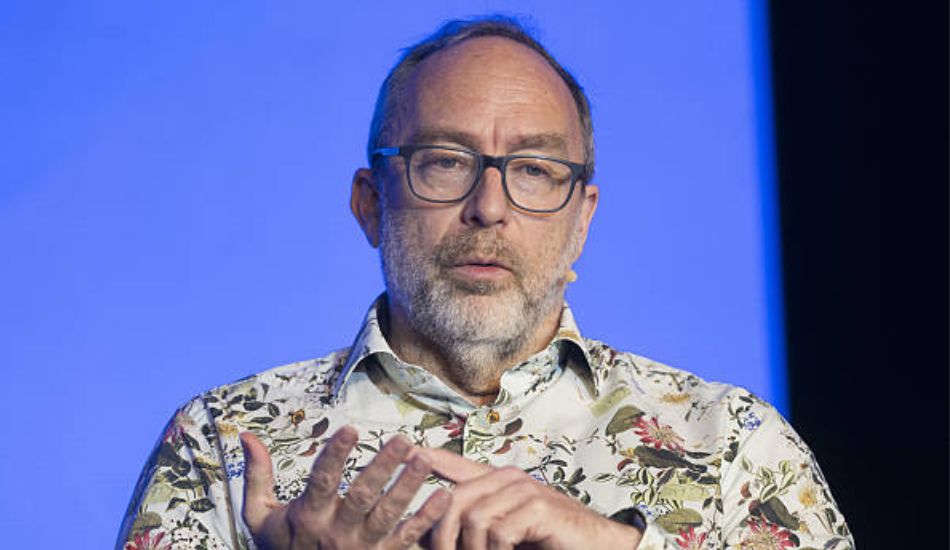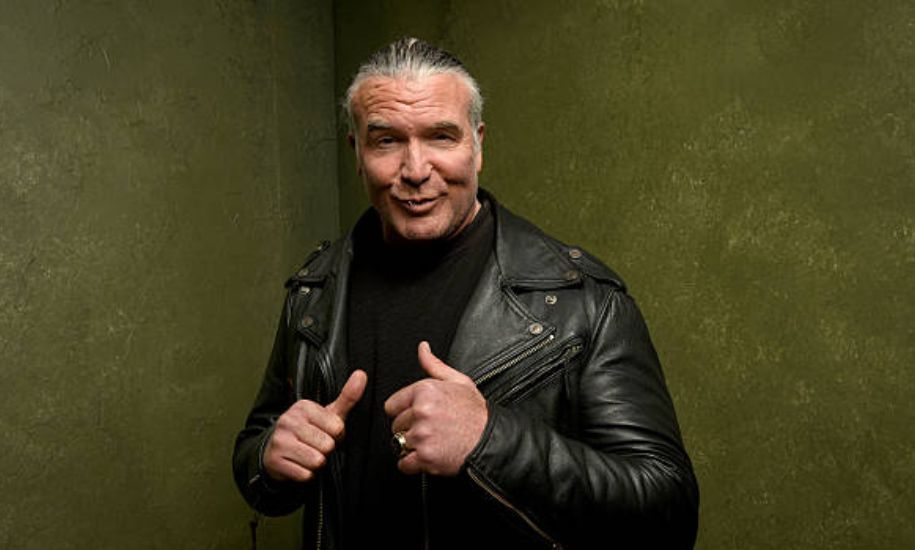Mock the Week: Behind the Laughter of Britain’s Sharpest Satirical Show

When it comes to British comedy that perfectly balances political satire, sharp wit, and chaotic improvisation, Mock the Week remains an enduring favorite. For seventeen years, the show dominated BBC Two’s lineup and shaped the careers of some of the UK’s most beloved comedians. This article explores everything about Mock the Week — who it is, how old it is, its cast, relationships, “family,” and even its estimated worth in the comedy world.
Who (or What) Is Mock the Week?
Mock the Week isn’t a person but a long-running British television panel show that blends current affairs with humor. Created by Dan Patterson and Mark Leveson, who also co-created Whose Line Is It Anyway?, the show first aired on BBC Two on 5 June 2005. It continued until 4 November 2022, spanning 21 series and more than 230 episodes.
The format was simple yet genius: two teams of comedians, guided by a host, competed to deliver the funniest takes on the week’s news stories. The result was a whirlwind of political jabs, absurd improvisation, and biting satire. The show’s unique tone—half comedy panel, half stand-up showcase—made it a cult favorite for audiences who appreciated intelligent humor mixed with outrageous one-liners.
From the outset, Mock the Week became synonymous with topical wit. It gave space for comedians to push boundaries, comment on current events, and poke fun at politicians and celebrities. Over time, it became a cultural thermometer—measuring and mocking Britain’s ever-changing social and political landscape.
The Age of Mock the Week: Seventeen Years of Satire
At the time of its final broadcast in 2022, Mock the Week had reached the ripe old age of 17 years. That’s an impressive lifespan in television, especially for a topical comedy format that needed to reinvent itself weekly to stay relevant.
The show debuted during Tony Blair’s final term as Prime Minister and wrapped up under Rishi Sunak’s government—spanning six different British prime ministers, a global financial crisis, Brexit, and a pandemic. Few other TV programs have chronicled the political absurdities of the 21st century with such consistency and humor.
Over its lifespan, the show went through subtle transformations in tone and pacing. The early seasons were edgier, driven by confrontational humor and comedians like Frankie Boyle. Later years leaned more toward playful observation and self-aware satire, particularly after the rise of social media outrage culture changed what could and couldn’t be said on TV.
Still, Mock the Week remained remarkably loyal to its core mission: to find comedy in chaos.
Meet the Cast and Comedians Who Defined It
The face of Mock the Week was, undoubtedly, Dara Ó Briain, the Irish comedian, physicist, and host. His quick wit, intellect, and warmth held together the organized madness of each episode. Behind his calm presence was an army of unpredictable panellists who made the show what it was.
Hugh Dennis, one of the UK’s most consistently funny performers, was the only panellist to appear in every single series. Known for his dry wit and calm delivery, Dennis was the show’s moral compass when chaos erupted around him.
Frankie Boyle brought controversy, brilliance, and sometimes outrage. His savage humor became a defining feature of the early years before he left in 2009. Other beloved regulars included Russell Howard, Andy Parsons, Chris Addison, Milton Jones, Ed Byrne, James Acaster, and Angela Barnes, among many others.
Through these comedians, Mock the Week became a launchpad for talent. Many of its panellists later headlined their own tours, shows, and specials. Without Mock the Week, the modern British stand-up scene would look entirely different.
The Net Worth of Mock the Week and Its Comedians
Although the BBC doesn’t release exact financial data for its programs, the show’s cultural and financial value was undeniable. At its peak, it drew audiences of over three million viewers per episode and helped sell out live tours for nearly every comedian who appeared.
As for individual net worths:
- Dara Ó Briain is estimated to have a net worth of around US $4 million, thanks to his TV work, tours, and books.
- Frankie Boyle, whose production company McShane Karate manages his earnings, is estimated to have assets worth over £4 million.
- Russell Howard—arguably one of the show’s biggest success stories—has built a net worth of around US $10 million, with international tours and his own series, Russell Howard’s Good News.
If one considers the collective brand value of Mock the Week—its reruns, live spin-offs, and enduring online popularity—the show’s entertainment worth easily sits in the tens of millions of pounds in legacy and revenue terms.
The Family Behind the Show: A Community of Comedians
Unlike traditional television dramas, Mock the Week had no fictional “family,” but over time, it developed a very real one: a community of comedians who shared stages, jokes, and friendship.
The show was recorded in front of a live audience, often producing hours of unscripted content. The banter, rivalries, and camaraderie off-camera were just as lively as what made it on air. Dara Ó Briain once described the show as “a comedy family that bickers, laughs, and survives the news together.”
Behind the scenes, the producers maintained a “family feel,” regularly bringing back past guests for anniversary specials and maintaining long-term collaborations.
Relationships and Personal Lives: The Human Side
While Mock the Week itself can’t have relationships or children, many of its key comedians have shared glimpses of their family lives publicly.
- Dara Ó Briain has been married to Susan, a surgeon, since 2006, and the couple have three children—two sons and one daughter. Despite his fame, Dara keeps his family life private, only occasionally mentioning them in his stand-up.
- Hugh Dennis, the thoughtful stalwart of the show, was previously married to Kate Abbott-Anderson, with whom he shares two children.
- Frankie Boyle rarely discusses his personal life but is known to have a family and remains based in Glasgow.
- Russell Howard married Cerys Morgan, a doctor, in 2019 after a long relationship, reinforcing the trend that Mock the Week comedians often marry into medicine!
In a way, the cast’s personal lives contrasted sharply with their on-screen personas. Offstage, many were quiet, studious, and family-oriented, showing that their biting satire didn’t define who they were as people.
“Father” of the Show: Dan Patterson and Mark Leveson
If we stretch the metaphor, the “father” of Mock the Week would be its creators, Dan Patterson and Mark Leveson. The duo had already revolutionized TV comedy with Whose Line Is It Anyway? and brought the same improvisational brilliance to Mock the Week.
They envisioned a show where comedians could riff on real headlines and where spontaneity trumped scripts. Their approach paved the way for a new era of panel shows like Have I Got News For You, Would I Lie To You?, and QI to thrive.
Their ability to balance creative freedom with editorial control was a masterstroke—allowing comedians to be raw and daring, yet still within the BBC’s standards.
“Mock the Week This Week”: The Final Chapter
For fans searching “Mock the Week this week,” the sad truth is that there’s no new episode airing anymore. In August 2022, the BBC announced the show’s end, citing a “natural conclusion” after 17 years.
The final episodes aired that autumn, filled with nostalgia, laughter, and heartfelt goodbyes. The finale was a love letter to the show’s legacy, featuring appearances from long-time contributors and emotional tributes from comedians it helped launch.
Even after its cancellation, reruns continue to air on Dave TV and BBC iPlayer, where fans revisit classic moments—Frankie Boyle’s shocking punchlines, Russell Howard’s gleeful energy, or Dara’s lightning-fast comebacks.
Cultural Impact and Legacy
The legacy of Mock the Week goes beyond its jokes. It changed how British comedy interacts with current events. The show made it acceptable—even expected—for comedians to be politically literate and for politics to be funny.
Many of today’s comedians, from Nish Kumar to Angela Barnes, credit the show with giving them both visibility and confidence. For viewers, it became a ritual: the week wasn’t complete without seeing the world’s absurdities skewered on BBC Two.
Though the television landscape is shifting toward streaming and social media snippets, Mock the Week’s spirit lives on in countless podcasts, YouTube compilations, and live tours.
It wasn’t just a TV show; it was a training ground for Britain’s funniest minds.
Why It Ended
According to BBC statements, the show’s cancellation was part of a broader strategy to refresh its comedy slate and make room for new voices. But for fans, it felt like the end of an era. Dara Ó Briain expressed both sadness and gratitude in his farewell, saying, “We just couldn’t be more proud of what we made. It’s been an incredible 17 years.”
Even in ending, Mock the Week proved its resilience. Clips of the final episodes went viral, fans petitioned for its return, and new audiences discovered its archives.
Mock the Week: The Comedy Family Tree
If Mock the Week had “children,” they would be the comedians it nurtured—those who grew from panellists into household names.
- Russell Howard went on to host The Russell Howard Hour.
- Chris Addison became a successful director (Veep, The Thick of It).
- Frankie Boyle helmed New World Order.
- Angela Barnes hosts Radio 4’s Newsjack.
- Nish Kumar and James Acaster rose to prominence as national comedy icons.
Each of them carries a trace of the Mock the Week DNA: fast thinking, topical humor, and a readiness to laugh at the madness of the world.
Conclusion: The Enduring Spirit of Mock the Week
Though Mock the Week has ended, its influence endures. It was more than a panel show—it was a cultural mirror, a platform for truth told through laughter, and a family of comedians who found unity in humor.
Whether it was Frankie Boyle’s brutal honesty, Hugh Dennis’s measured wit, or Dara Ó Briain’s commanding presence, the show represented the best of British satire.
Fans continue to share clips online, discovering jokes that feel just as relevant today as they did years ago. The show might have gone off air, but the laughter it sparked lives on—in podcasts, in new comedy acts, and in the hearts of its audience.
For those who cherish sharp, intelligent humor, Mock the Week remains timeless. Its comedic “family” continues to grow, ensuring that the laughter never truly stops.
Article by FanzineBlog — bringing you deep dives into entertainment, comedy, and culture.

